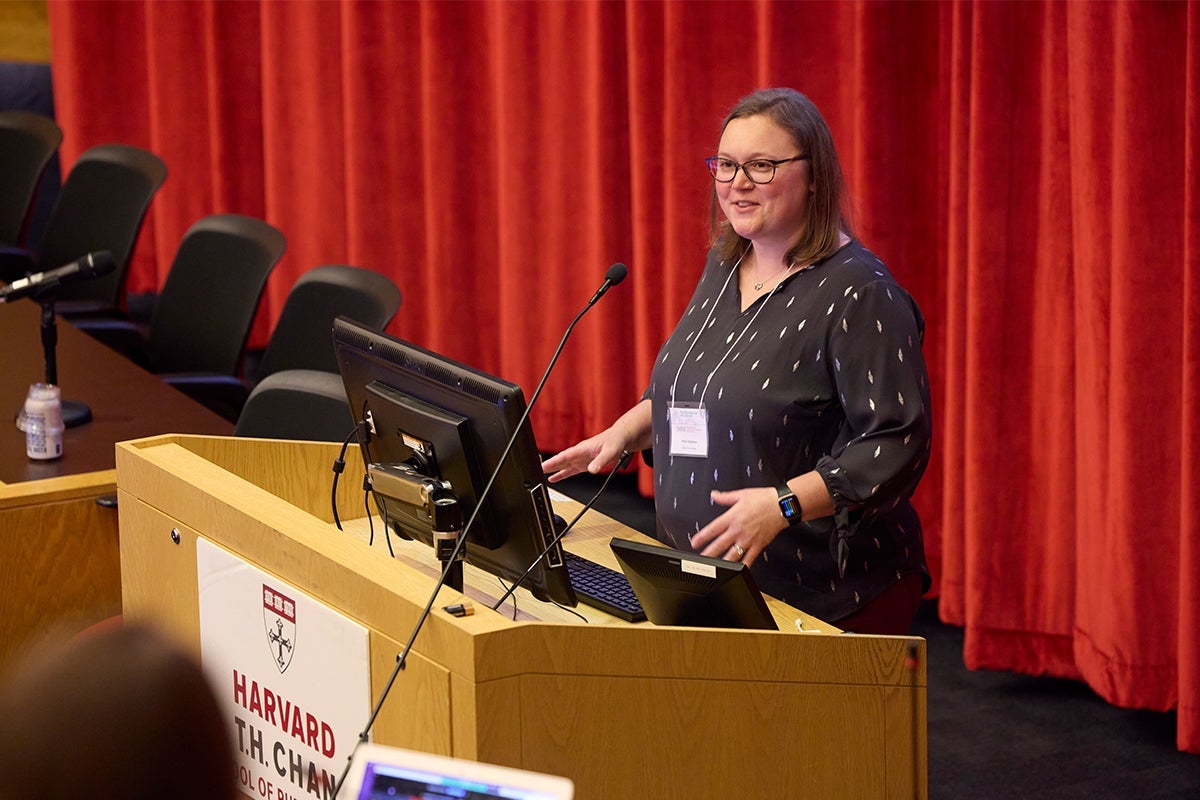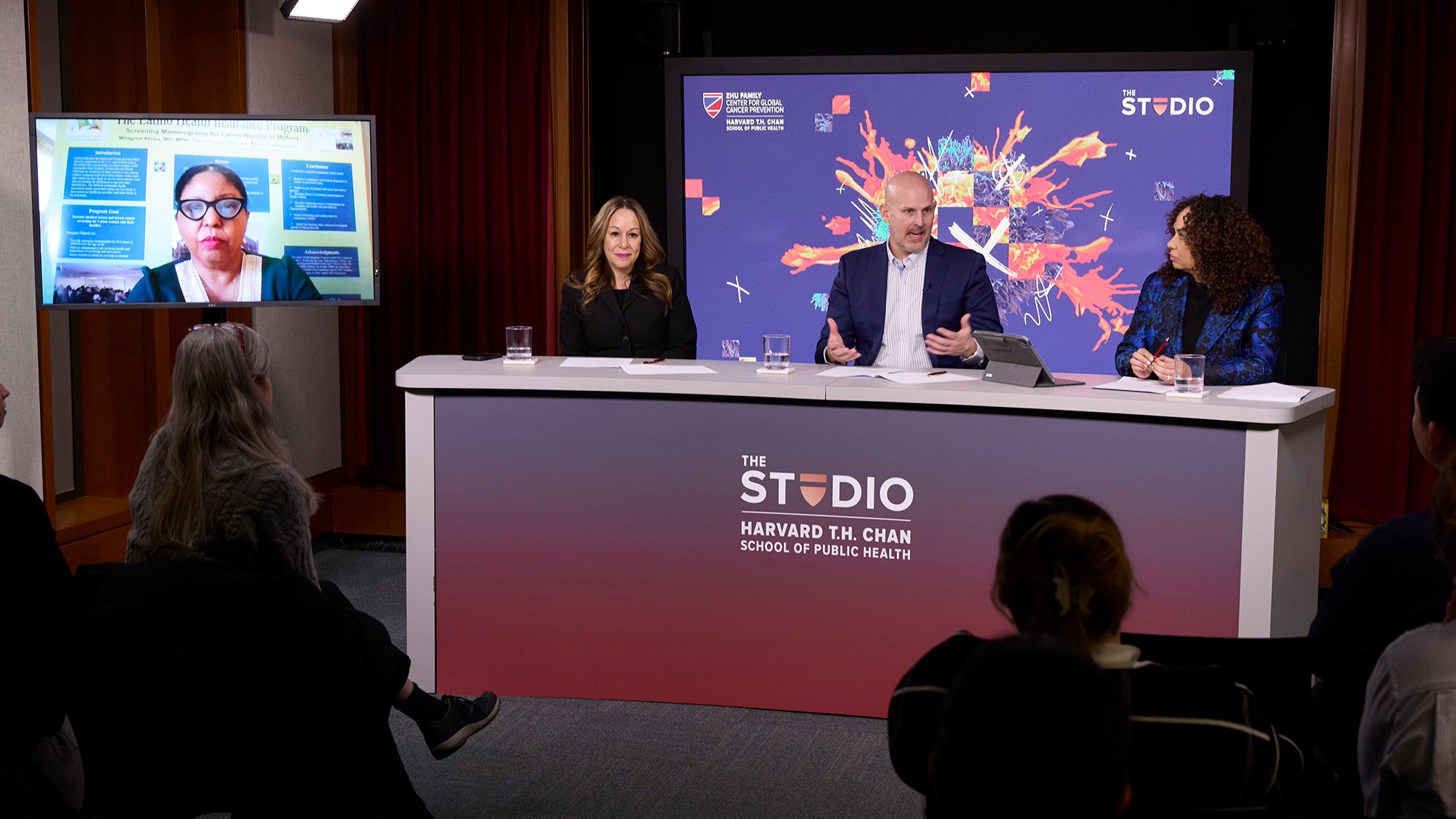Symposium explores microbiome’s roles in cancer

May 16, 2024 – The microbiome contributes to cancer development in many ways—from producing toxins, to damaging DNA, to interacting with the immune system to cause inflammation. It’s also involved with cancer treatment, for example acting on chemotherapy drugs to either help activate them or cause side effects.
These were just a few of the topics discussed at the 6th annual symposium of the Harvard Chan Microbiome in Public Health Center, a hybrid event held May 13 at Harvard T.H. Chan School of Public Health.
“Understanding the microbiome’s role is very important from a patient perspective, from a basic science perspective, and provider perspective,” said Wendy Garrett, Irene Heinz Given Professor of Immunology and Infectious Diseases, in introductory remarks. She and Curtis Huttenhower, professor of computational biology and bioinformatics, are co-directors of the center.
“These are thrilling times for the School, thrilling times for medicine, thrilling times for public health, and especially for the microbiome,” said Andrea Baccarelli, dean of the faculty. “If I had to point out one single innovation in the understanding of the human body, of health and disease, I would have no hesitation to think the microbiome.”
He added, “We really hope that together, we can change the course of history in tackling cancer and decreasing the burden of cancer worldwide.”
Oral microbiome’s influence beyond the mouth
The human microbiome is the collection of microorganisms that live in or on different parts of the body, such as the mouth, gastrointestinal tract, and skin. It includes bacteria, viruses, fungi, and other types of microbes.
One topic addressed at the symposium was how the microbiome in one part of the body can lead to cancers in other parts of the body.
One of the keynote speakers, Jun Yu, Choh-Ming Li Professor of Medicine and Therapeutics at the Chinese University of Hong Kong, shared her research on colorectal and gastric cancers. By comparing gut microbiome samples of individuals with and without those two cancers, she identified several bacterial species that were associated with the development of disease. For gastric cancer in particular, she identified bacteria that are known to live in the mouth rather than the gut. Yu also discovered some of the biological mechanisms potentially involved in the development of gastric cancer, such as which protein receptors the disease-promoting bacteria bind to on the surface of gut cells.
Emily Vogtmann, Earl Stadtman Investigator at the National Cancer Institute, also shared findings about the oral microbiome, including its link with lung cancer as well as head and neck cancer. Her research has found an association between having lung cancer and certain oral bacteria, including those that cause periodontal disease. In contrast, she found that the presence of certain oral fungi was linked with a lower risk of head and neck cancer.
“It’s really important to not just focus on the bacteria, but to also consider viruses, fungi, interaction with host genetics, etc.,” she said.
Vogtmann added, “There’s a lot of opportunities throughout the cancer continuum to really use the oral microbiome to try to decrease risk and treat cancer.”
There were more than two dozen speakers from around the world at the symposium, which drew roughly 100 in-person and 300 virtual participants from 25 countries. Ana Nogal, postdoctoral research fellow in Harvard Chan School’s Department of Epidemiology, was among the presenters. Topics covered during the event included the roles of the microbiome in cancer treatments, such as immunotherapy and radiation therapy; the microbiome’s interactions with diet; and the commercialization of microbiome science.
– Jay Lau
Photo: Kent Dayton


